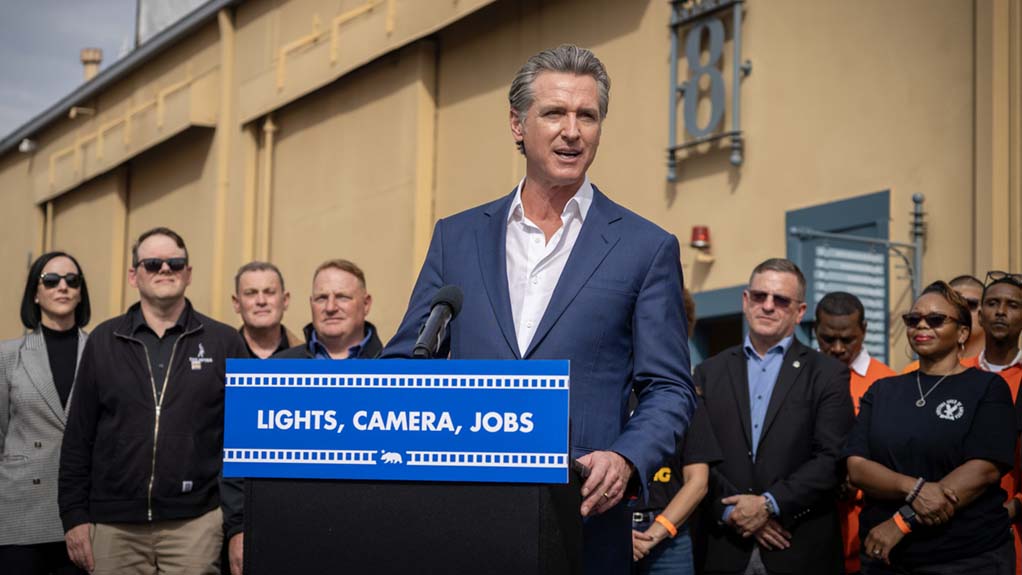
SACRAMENTO, Calif.—The California Legislature has approved a plan to encourage studios to film in-state by increasing the cap on tax credits from $330 million to $750 million.
The trailer bill marks the first of two significant steps to protect and expand good-paying film and television jobs in California. The second step to securing the state’s position as a global entertainment hub will come this week, as AB 1138, the California Film and Television Jobs Act, moves forward in the Senate Appropriations Committee.
Gov. Gavin Newsom, who proposed the credit increase last fall, is expected to sign the bill.

“More than doubling the program’s allotted cap to $750 million annually underscores just how vital our industry is to the economic health of our state, and the power of our members' voices,” the Entertainment Union Coalition said in a statement.
Assemblymember Rick Chavez Zbur, a Democrat representing parts of Los Angeles County, applauded the expansion of the tax credit.
“After years of uncertainty, workers can once again set the stage, cue the lights, and roll the cameras—because California is keeping film and TV jobs anchored right here, where they belong,” Zbur said. “This is a historic investment in our creative economy, our working families, small businesses and the communities that depend on this industry to thrive. We’re not just restarting production—we’re rewriting the script to put workers back at the center of California's entertainment future.”
Since 2009, the Film & Television Tax Credit Program has been successful in creating over 197,000 jobs and generating $26 billion in economic activity across California. According to the L.A. County Economic Development Corporation, every dollar spent through the program generates $24.40 in economic output, $16.14 in GDP, $8.60 in wages and $1.07 in state and local tax revenue.
The professional video industry's #1 source for news, trends and product and tech information. Sign up below.
In recent years, the state has seen a decrease in tax revenues from film and TV production, partly due to the double whammy of the pandemic and the almost year-long actors and writers strike that crippled the industry in 2023. But the governor’s office attributed the main reason for the decline to the limits of the current program.
This program has been oversubscribed year after year, with more productions applying than can be accommodated under the current cap,” Newsom said when he proposed the increase in October. “Between 2020 and 2024, data shows California lost production spending due to limited tax-credit funding and increased competition in other states and countries, directly impacting state jobs and local economies.”
Tom has covered the broadcast technology market for the past 25 years, including three years handling member communications for the National Association of Broadcasters followed by a year as editor of Video Technology News and DTV Business executive newsletters for Phillips Publishing. In 1999 he launched digitalbroadcasting.com for internet B2B portal Verticalnet. He is also a charter member of the CTA's Academy of Digital TV Pioneers. Since 2001, he has been editor-in-chief of TV Tech (www.tvtech.com), the leading source of news and information on broadcast and related media technology and is a frequent contributor and moderator to the brand’s Tech Leadership events.

